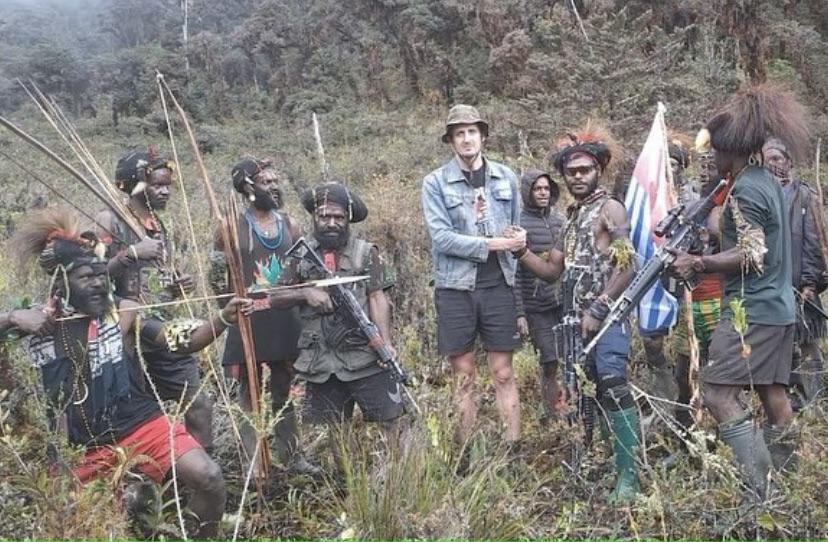International Conflict in West Papua
Freedom Fighters Hold a New Zealand Pilot Captive

How do you get world attention for a cause to help save your culture? The freedom fighters of West Papua are asking that very question.
On February 7, 2023, 37-year-old Phil Mehrtens, a New Zealand pilot, was kidnapped by the West Papua Liberation Army, the military wing of the Free Papua Organization. Spokesperson for the separatists Sebby Sambom said the fighters, led by group commander Egianus Kogoya, set fire to the plane and seized its pilot as part of their struggle for independence after it landed in Nduga, a mountainous district.
The plane, operated by Indonesian aviation company Susi Air, was carrying about 990 pounds of supplies from an airport in Timika, a mining town in Papua.
Phil Mehrtens is far from the first hostage to be taken. Nearly three decades ago in the neighboring district of Mapenduma Papuan, freedom fighters kidnapped a group of environmental researchers from Europe and held them for five months. Leader of the expedition, British student Daniel Start, wrote a book documenting the ordeal called The Open Cage.
The history of the island’s conflict can be traced back to 1962 when West Papua was a colony of the Dutch. At that time the U.S. facilitated what became known as the New York Agreement, which handed West Papua over to the United Nations and then to Indonesia. Since that time West Papuans have been subjected to violent human rights abuses, environmental and cultural dispossession, and mass killings under Indonesian rule as well as mass immigration policies.
Sambom said, “New Zealand, Australia, and America must be held accountable for what they have done in creating a genocide where at least 200,000 Papuans have been killed over the past sixty years.”
Mehrtens remains isolated along with 20 or so Freedom fighters within the jungles of Papua. Attempts by the Indonesian military have all failed to rescue Mehrtens. This latest kidnapping by the freedom fighters is a cry out to the world that no foreigners are safe in Papua. They say, “Our people have suffered far too long and these attempts to bring attention to our cause are a reminder that the outside world needs to understand our desperate situation in which so far all have turned a blind eye.”



